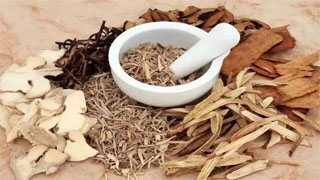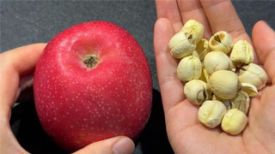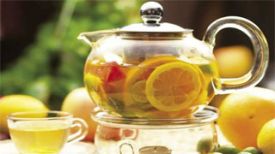
Wendan Tang, the name of a traditional Chinese medicine formula. For expectorants. From "The Effective Formula of World Medicine" and "The Theory of Three Causes and Extreme Diseases" Volume 10: "Treatment of heart and gallbladder deficiency, easy to startle when touching things, or ominous dreams, or confused visions, which cause fear and intimidation, qi stagnation and salivation, salivation and gas pulsation, and various syndromes, such as shortness of breath, fatigue, sweating, limb swelling, tasteless food and drink, heart deficiency and restlessness, and restless sitting and sleeping." Volume 9 of "The Theory of Three Causes and Extreme Diseases": "After treating a serious illness, it is difficult to sleep due to deficiency and restlessness. Therefore, this medicine is mainly used for this purpose. It also treats palpitations." In clinical practice, I like to use it to treat timidity and restlessness, with modifications for the liver. Dysphagy caused by disharmony of the gallbladder and phlegm dampness.
【 Composition of Soup Formula 】
Pinellia ternata, Zhuru, and Citrus aurantium each have two liang, tangerine peel has three liang, roasted licorice has one liang, and Poria cocos has one and two halves.
Boil soup according to the above ratio and drink it as tea
Analysis of Soup Formula
Pinellia ternata in the soup is a medicinal herb that is warm and pungent, can dry dampness and reduce phlegm, and can relieve nausea and vomiting in the stomach. I use bamboo stalks, which are sweet but slightly cold, to clear heat and phlegm, relieve annoyance and nausea. Banxia and Zhuru blend together, one warm and one cool, with the ability to reduce phlegm and harmonize the stomach, as well as relieve nausea and annoyance. Chenpi is warm and hardworking, with stagnation in regulating qi and resolving dampness and phlegm. Citrus aurantium works hard with slight coldness, reduces qi stagnation, and eliminates phlegm and phlegm. Chenpi and Fructus Aurantii complement each other, with one warm and one cool, and their ability to regulate qi and phlegm increases. Accompanied by Poria cocos, it can invigorate the spleen and promote dampness, and is the source of phlegm production. Boil and add ginger and jujube to harmonize the spleen and stomach, and ginger also has toxic effects on Pinellia ternata. Using licorice as a tool to blend various medicines.
[Explanation of Fang Yi]
Tang Fang syndrome is caused by multiple factors such as insufficient body gallbladder qi, which is further compounded by emotional instability, loss of gallbladder function, stagnation of qi leading to phlegm production, internal disturbance of phlegm turbidity, and disharmony between gallbladder and stomach. Gallbladder is a place of purity, with a peaceful and tranquil nature that dislikes disturbance. If the gallbladder is disturbed by evil and loses its tranquility, it will be timid and easily startled, restless and restless, with frequent dreams at night and palpitations; If there is disharmony between the gallbladder and stomach, and the stomach loses balance, vomiting, phlegm, saliva, hiccups, and palpitations may occur. Phlegm can cause dizziness and even epilepsy if it clears the orifices. The treatment is suitable for regulating qi and phlegm, and promoting bile flow in the stomach. The soup formula has the effects of regulating qi, resolving phlegm, and promoting bile flow in the stomach.
【 Indicative efficacy 】
Indications: Gallbladder depression and phlegm disturbance syndrome. Afraid and easily startled, dizzy and palpitations, restless and sleepless, with frequent dreams at night; Or vomiting, belching, dizziness, epilepsy. Moss is white and greasy, with smooth veins.
This soup has the effects of regulating qi, resolving phlegm, and promoting bile flow in the stomach.


